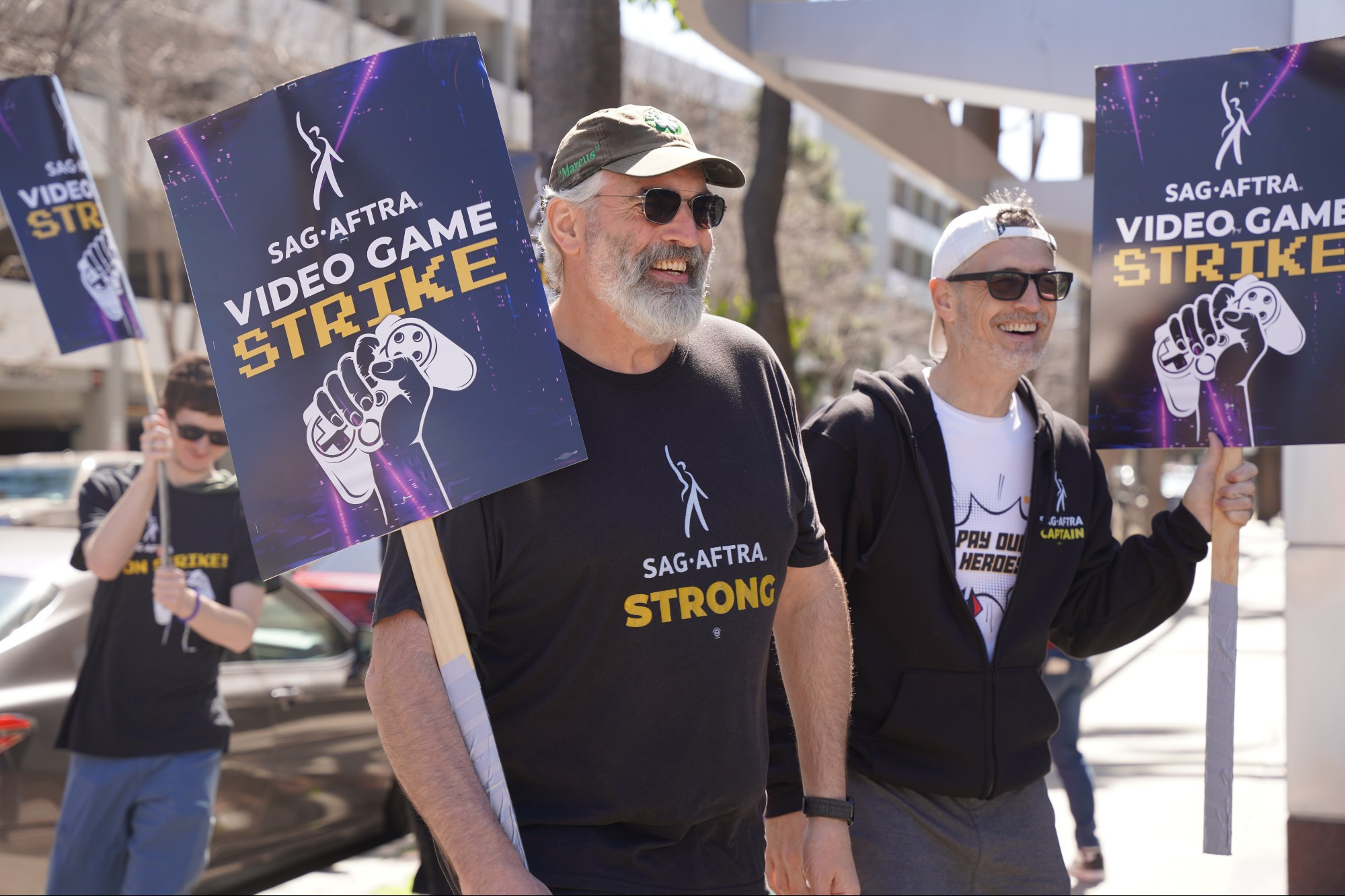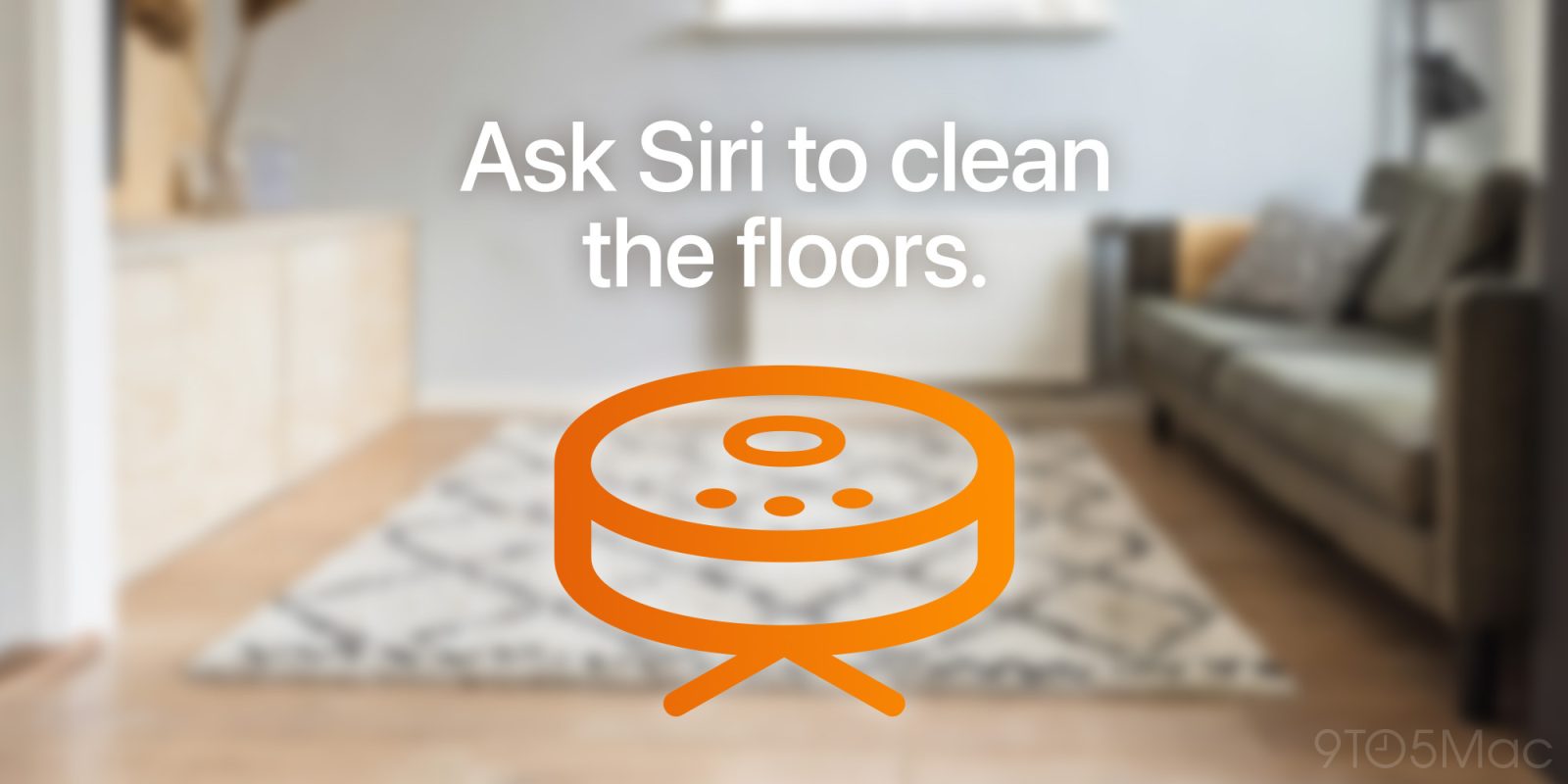
SAG-AFTRA urges more non-struck game studios to sign interim agreement
www.gamedeveloper.com
Bryant Francis, Senior EditorApril 1, 20258 Min ReadImage via SAG-AFTRA.At a GlanceSAG-AFTRA is entering its second year of striking studios under the Interactive Media Bargaining agreement.In that time, it's signed over 120 studios to the "interim agreement" that provides protections against AI voice usage.Now the union is urging all developerseven non-struck onesto consider signing the agreement.A recent back-and-forth between Hades II developer Supergiant Games actor Marin M. Miller shone a spotlight on a growing question developers face as SAG-AFTRA's strike against games signed under the Interactive Media Agreement enters its second year. What, exactly, do studios not under the agreement owe the actors they work with?Though the union's sticking point in negotiations with the bargaining group that includes Electronic Arts, Activision, and Take-Two Interactive is centered on disagreements on terms covering generative AI, Miller and Supergiant's conflict derives from a bigger purpose: actors asserting that now more than ever, they want contract terms to be backed up by unions with the resources to enforce them if things go south.That's one of the many messages that SAG-AFTRA Interactive Negotiating Committee chair Sarah Elmaleh and national executive director Duncan Crabtree-Ireland hope developers are starting to hear. As the strike winds onward, the number of games being completed through under "side letter six" (the clause in the Agreement stating games that entered production before the strike are not officially struck) is dwindling down. That means publishers are eyeing casting needs for their next gameand actors, waiting for them to reach an agreement with the unionare looking for work with studios that hadn't previously signed any agreement.Related:On the surface, it's fair for a studio to ask why they would need a union contract. If they previously enjoyed a good relationship with an actor, and offered favorable terms, wouldn't that be enough?The answer, Crabtree-Ireland and Elmaleh said in an interview with Game Developer during the 2025 Game Developers Conference is "No."Why is the SAG-AFTRA strike still going?Studios hoping for the strike to resolve and for pressure to ease up any time soon might have a while to wait. According to Crabtree-Ireland, the nine companies that make up the game industry negotiating group can't agree with each other about "the basic principles that underly the AI protections we're looking for," he explained. "That hasn't been our experience with other bargaining groups."In case you need a reminder, Crabtree-Ireland fought that fight in 2023 during the SAG-AFTRA theatrical and television strike with the Producers Guild of America. "It took a minute to get there, but we made progress a lot faster toward that ultimate conclusion: informed consent, improved compensation, and parameters around generative AI use."To put his comments into context, with over 120 companies having signed the interim agreement, any members of the industry negotiating group that want to agree to SAG-AFTRA's terms are effectively being held back from casting union talent for new games. That means for however brief a window, smaller studios have a competitive edge against major industry players.Related:Which brings us back to the ongoing campaign by actors to secure interim agreements with their studio partners. As demonstrated in Marin's comments about Supergiant Games, more and more actors want "the very particular protections and strength of a union contract," Elmaleh said. "[The threat of AI] is new. It's unique, it's more serious than possibly any other threat we've faced as a community and that's really motivating people to recognize that the contract is special for many reasons, not only because of AI protections, but also the ability for a union to enforce those and...other protections in the contract" (Supergiant Games declined to comment after we reached out in advance of this story).If an actor enters a dispute with a developer (or third-party recording studio) over an individual contract, they have to pay their own lawyer to take it to court. If they enter a dispute over a union contract, their union dues pay for legal protection, among other benefits like health insurance, both of which carry over from job to job.Related:Elmaleh said that if one of your actors is asking for you to sign the contactto "go union"what they're saying is "this contract matters to me and these are my terms that I need to protect my career...I would love for you to sign this because this matters to me for self protection." She added that direct relationships between developers and SAG-AFTRA (as opposed to recording companies like the still-struck Formosa Interactive) allows the union to be "flexible" with the specific terms of the agreement.The realities of recastingTo the best of Game Developer's knowledge, none of the games struck by SAG-AFTRA have been recast with non-union talent. But games that aren't struck are a different story. Actors on games like Call of Duty: Black Ops 6 Zenless Zone Zero are among those who've been replacedsome of them stating they were recast after asking their employers to sign an interim agreement in exchange for their continued work.But as Canadian actor Humberly Gonzlez reminded us last year, the United States is not the only market for voice actors, and some games may employ actors from multiple territories covered by multiple unions to build the best possible cast. If the strike continues, could we see studios head overseas to fill gaps in productionespecially if they're in search of talent more willing to sign away their voice for generative AI use?That question has been on the lips of several voice actors Game Developer has spoken with in the last few months, with some pointing to a statement made by French voice actor Pascale Chemin saying her castmates on an unnamed game had been asked to sign a contract allowing for their voices to be used for generative AI by an unnamed publisher. (Pascale did not state which publisher or dubbing studio presented the contract, though she tagged the other actors in her Instagram postall of them are the French-language voices on Apex Legends. The tagged actors offer the only clue as to which game she was referring to).Chemin and her colleagues held the line against this unknown publisherbut will every actor do so? In every territory?"AI is a mandatory subject of bargaining, and that means you should not be circumventing or attempting to circumvent this process," Elmaleh said when asked about the possibility of currently-struck companies eyeing international replacements. Crabtree-Ireland agreed, saying it would be "reprehensible" for a company to go to such lengths to "foist unfair AI terms on performers.""You should expect to be called out not only by performers, but other fans too."He did say that that "there is no need" for any studio under the struck Interactive Media Agreement to take such steps. "More than 175 games and more than 50 percent of production earnings are covered under our interim or tiered independent agreements. It's entirely feasible to produce your game responsibly and under union contracts with fair AI protections."And as Chemin demonstrated, actors in other regions are willing to demonstrate solidarity if need be. As Crabtree-Ireland put it, "Most of the unions in other possible video game production jurisdictions have stated that they will fight against productions relocating to their jurisdictions to avoid the strike, not only out of solidarity but also because they don't want to work under unfair terms either."Worker protections are about more than legal termsGame development is a risky business and even salaried developers know their jobs are not the shining picture of stability. But by nature of the work, actors are in a more precarious position. Actors like Elmaleh hop from project to project as contractors, juggling the challenges that come with that life."It is a wild puzzle," she said when describing her relationship with the craft. When she's in the studio she needs to be able to keep a consistent performance that will allow a developer to seamlessly blend recordings from multiple days, a task that can be "potentially very athletic and flexible."In a post-GDC chat with Skin Deep developer Blendo Games, writer and narrative designer Laura Michet offered practical reasons for why the low-budget indie team went through the process of casting talent under the interim agreement through a third-party signatory. Blendo hasn't used voice acting in its previous games, and "I've worked with the union previously at some of my other jobs. I really love how everybody that you tend to get through there is very experienced," she said. "This is smooth sailing for them. There's no ambiguity, and they're very confident. It's always great to be in good hands when you're doing your first big game with [voice acting]."The union's standards, Elmaleh said, protect actors and offer stability they can rely on to keep themselves healthy and deliver high-quality work like the kind described by Michet.If developers prefer not to cast through a union agreement it's an actor's choice as to whether they want to keep working with that employer. But even if a studio has no legal obligations to the union, and believe that their choice to not sign a contract has limited consequences, Elmaleh argued there is still a bigger picture they need to consider. "You might feel like you're off in a corner, doing something on your own and doing things your own way, but you are part of a larger industry, and your games have an impact on people in that industry."For an example of the "impact" developers can have, let's return to Supergiant Games, a company that has produced inspiring, high-quality work with the help of voice acting talent. Hades was such a popular game that you can now find game mechanics and narrative systems inspired by the studio's work all over Steam.Inspiration takes many formsand the decision to work or not work with a given voice actor, or SAG-AFTRAmay send a message to other developers watching to see how their peers respond to the strike."It is an illusion to think that we don't impact each other," Elmaleh said. "That's not how this industry works."Game Developer and GDC are sibling organizations under Informa.About the AuthorBryant FrancisSenior Editor, GameDeveloper.comBryant Francis is a writer, journalist, and narrative designer based in Boston, MA. He currently writes for Game Developer, a leading B2B publication for the video game industry. His credits include Proxy Studios' upcoming 4X strategy game Zephon and Amplitude Studio's 2017 game Endless Space 2.See more from Bryant FrancisDaily news, dev blogs, and stories from Game Developer straight to your inboxStay UpdatedYou May Also Like
0 Comentários
·0 Compartilhamentos
·16 Visualizações











